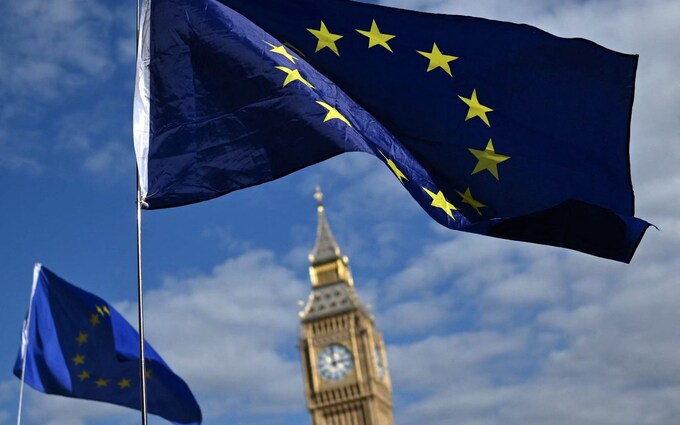Brexit doom is wrong again: it didn’t cause the recession.
While some are desperate to justify Project Fear, there’s little to suggest Brexit is behind our low growth
JULIAN JESSOP18 February 2024 •

The usual suspects have been quick to blame Brexit for the news that the UK ended 2023 in recession. Fortunately, the claim that the economy would still be growing if only we had remained in the EU can easily be debunked.
Just look at the damage that the global energy crisis and higher interest rates has also done to the rest of Europe. The long list of countries where national output (GDP) fell in at least two successive quarters last year includes Austria, Denmark, Finland, the Netherlands, Norway and Sweden, as well as both Germany and France (on the unrounded data).
But even if Brexit was not responsible for the UK recession in the second half of 2023, perhaps it explains the apparent underperformance since 2016? A recent Goldman Sachs study is the latest to argue that UK GDP is already as much as 5 per cent smaller as a result of the vote to leave the EU. This is in the same ballpark as estimates by John Springford at the Centre for European Reform (CER), and others who have used a similar approach.
In a nutshell, these studies tend to run a computer algorithm to select a weighted combination of economies whose growth best matched that of the UK before the EU referendum. This actual performance of the UK economy since 2016 is then compared to a synthetic “doppelganger”, and the difference taken as a proxy for the impact of Brexit. The doppelganger models are a sophisticated way to solve the problem of the “counterfactual” – or what might have happened if the UK had not left the EU. They are also widely used in other fields. But I still would not trust them.
For a start, using a computer algorithm to remove any potential “biases” in the choice of countries also reduces the scope for judgement about the most sensible benchmark for the UK. My preference is simply to compare UK GDP with that of our peers in the rest of Europe, notably Germany, France and Italy, or an average of the euro area countries excluding Ireland (whose data are distorted by multinational companies).
On this basis, it is not at all clear that the UK has done much worse since 2016 (even on GDP per head). And if the UK had grown by an extra 5 per cent, we would have far outpaced our EU peers – which is simply implausible.
In contrast, the doppelganger models assume that, without Brexit, the UK would have continued to track a more diverse group of economies that happened to perform similarly in an earlier period – regardless of any other shocks or policy changes.
Indeed, the team at Goldmans acknowledged this. In the words of their report, “not all of the UK’s underperformance can be attributed to Brexit, as the UK economy might have been more adversely affected by the pandemic and the energy crisis than other countries”.
In particular, doppelganger models typically give a high weight to the US economy, which has benefited from huge fiscal stimulus, energy security, and different policy responses to Covid. The Goldmans economists have tried to get round this in two ways. One is to test the robustness of their doppelganger by tweaking the choice of countries and weights. But this risks defeating the purpose of using a computer algorithm in the first place. The other is to try to replicate the “top-down” results from the bottom up, by thinking through the mechanisms by which Brexit might have harmed the UK economy.
Business uncertainty and trade frictions have surely had some negative impacts, but do not appear to be anywhere near enough to add up to a 5 per cent hit to GDP.
We also need to take account of the potential benefits of Brexit. Some will take longer to be realised and may be hard to capture with an elegant model, but the claim that Brexit has condemned us to an extended period of relative decline does not hold water. DT.
.jpeg)